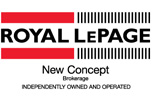|
Greetings from MyBestHome in Toronto, accompanied by the scent of spring in March 2007. I hope you have been doing well. Thanks to our customers’ support, MyBestHome has been busier than ever since last Lunar New Year in March. As you may know, spring is the season for house shopping, where families are searching for warm and happy homes to reside in. For me, it is a time to work closely with customers, both physically and mentally, to help them find the perfect home. During this period, I have noticed that many people have questions about the process of purchasing a home, as well as concerns and issues that arise when dealing with Realtors who represent them. Therefore, I would like to briefly explain the process of making an offer and choosing a Realtor, as well as establishing a good relationship with them. I hope this information will be helpful to you.
* What’s more important is to include a condition clause in the contract that allows the contract to be voided without any penalty after it has been signed. There are several conditions that can be included, but it is best to at least include a mortgage approval condition and a home inspection condition. * This is a safety mechanism that allows the contract to be easily voided and the deposit to be returned in the event of financial problems, structural or equipment issues with the home, or other unexpected problems that may arise after the contract has been signed. Typically, the condition period is one week after the contract is signed. * Once the offer document has been completed through consultation between the realtor and their client, the realtor will negotiate with the listing agent using the offer document. There are usually two methods for this. One is for the agent to meet with the seller and the seller’s agent to explain the offer (in this case, the buyer’s agent will negotiate back and forth with the seller and their agent to modify their requests until a conclusion is reached, which usually takes 2-3 hours). The other method is to modify the offer document through fax or email, and negotiate while the document is being exchanged. This method usually involves a lot of negotiation by phone and can take 2-3 days depending on the circumstances. * When making an offer, the buyer’s realtor will negotiate with the seller’s realtor, sometimes cautiously, sometimes jokingly, to fight an invisible battle for their client’s maximum benefit. This fight involves understanding the seller and the seller’s agent’s tendencies and developing strategies accordingly. That is literally the role of an agent, i.e. a representative. * Once the negotiations are successfully completed and a decision is made, a waiver is usually issued for one week. During this time, all aspects of the plan and conditions will be reviewed to determine if they are satisfactory, and an inspection will be conducted to assess the condition of the house. If there are no issues, or if any issues have been resolved and guaranteed, the final conditions waiver will be signed, and the contracting process will be completed. * Within 24 hours after that day, the deposit specified in the contract must be paid, a lawyer must be appointed, and homeowners insurance must be obtained until the Closing Date, when the keys will be received. Prior to receiving the keys on the day before the closing date, the remaining balance (home price – mortgage amount – deposit + transfer tax, etc.) must be paid by check and delivered to the lawyer. Once the keys are received on the closing day, the entire process is completed. * If the reason for the waiver cannot be satisfied within the usual one-week period, notify the Seller’s Agent, and sign the mutual release, which will render the contract void, and the deposit will be refunded. * One more thing to consider is that it is advisable to revisit the house a day or two before closing to check its condition. Verify that nothing has changed or been damaged or missing, and make sure all appliances are functioning. If there are any problems, notify the Seller’s Agent and work together to find a solution, or if that is not possible, you can ask your lawyer to withhold a certain amount of payment until the issue is resolved. You can insert a clause allowing for one more visit when making your initial offer. |
|
2. Selecting a Realtor and establishing a relationship * There are various ways to select a Realtor. One way is to receive recommendations or referrals from friends or relatives, while another is to contact them through advertisements in newspapers, magazines, and other media. Any method is possible and all are common. However, it is recommended that you always meet with them in person and make a decision after consultation. During the consultation, you can find out if the Realtor has the passion and professionalism, overall knowledge of the Toronto real estate market, and provides information on local conditions, schools, future vision, etc. You can also inquire if they provide various types of assistance such as inspections, mortgages, insurance, lawyers, and other useful information, especially for new immigrants or international students who need help settling in. You can gauge their passion for their work and how they approach their job, much like finding your own home. * Selecting the right Realtor is crucial for successful real estate transactions, as it accounts for more than 80% of success. In some cases, relationships with the Realtor can turn sour or poor housing choices can lead to the worst-case scenario. However, in most cases, situations like these are unavoidable and can arise after working together to find a home. * After selecting a Realtor, it is recommended that you explain in detail what you want to accomplish. This includes your budget, desired items, schools, housing type, housing style, age, and timing of moving. Depending on your situation, the optimal location and housing type will be determined. A popular area or area with many Koreans may not necessarily be the best for you. In fact, it may even be the worst. * When looking at homes with your Realtor, their role is not just to select and guide you through homes, but also to investigate and analyze whether the price of the home is higher than the market value or a fair price, by examining surrounding market conditions and past transaction records of the home. They should inform you about the home’s strengths, weaknesses, problems, and potential. They should also suggest ways to solve any issues and increase the home’s value, so that you can make an informed decision. * Its is recommended to choose one person and form a team and consistently working through teamwork. In this system, selling a house can only be done through one realtor. For those who have experience buying and selling real estate in Korea, it seems that they come into contact with many realtors and often want to see houses. In that case, you have to explain to every realtor you meet, it’s hard to receive professional service, and if the location and budget are somewhat fixed, it may result in seeing the same house multiple times, and it’s difficult to build trust through feeling, so you can’t do your best for each other, and it’s difficult to achieve good results. The most ideal results will be obtained when working consistently with one professional realtor and team. * Sometimes, there are cases where foreign realtors seem to have more capabilities, so they are selected. If one is capable of resolving all matters other than finding a home and can communicate sufficiently deeply with a realtor in English, then there is no problem. However, if that is not the case, there is a high possibility of facing significant difficulties. They have to contact and explain to all English-speaking people regarding inspections, mortgages, insurance, lawyers, and all backgrounds, and often have to sign as instructed when communication is not working well, and problems can arise one by one after that. Moreover, it may not be easy to recommend a suitable home for Koreans without understanding Korean culture, family style, schools, housing preferences, etc. during the process of finding a home. * Especially for buyers who are planning to purchase a house, it is common to select a Realtor and create a “Buyer Representation Agreement” at the beginning of the purchasing process, where both the Realtor and buyer sign the agreement and proceed with the process. However, in the case of foreigners, they often sign the document without properly understanding what it is. The agreement states that during the agreed-upon contract period, if the buyer violates the contract by purchasing a house through another Realtor, they must pay a penalty of 2.5% of the purchase price to the original Realtor. Therefore, it is important to fully understand the contents of the document before signing it. * Additionally, there are cases where buyers contract with the listing agent immediately after viewing the open house. This can be more risky than selecting a foreign Realtor. The agent becomes a dual agent, working for both the seller and the buyer, and often satisfies the seller’s interests more than the buyer’s due to their close relationship with the seller and the buyer’s lack of proficiency in English. In many cases, they do not inform the buyer of any significant defects or disadvantages of the house and proceed with the contract. There are few ways to undo this situation once it has been done. Although it may seem advantageous to save some of the buyer’s real estate brokerage fees through numerical calculations, it is important to keep in mind that it may not actually be a good deal in terms of the true value of the house and the limited negotiation range with the seller, and there is a high possibility of suffering a significant loss. * In most cases, when a house looks too good to be true because it is well displayed with expensive furniture or decorations or appears particularly cheap compared to the surrounding market prices, it is important to carefully analyze its market value. Such houses may have location or structural issues, or hidden disadvantages that are not immediately visible (e.g. corner houses, houses close to factories, high voltage lines, noisy houses, houses with undesirable facilities nearby, etc.). * Generally, Open Houses represent only a very small portion of the properties available on the current market. When you see many properties at an Open House that are not within your budget, it can cloud your judgment when you later try to choose a property within your budget. After seeing some Open Houses, it is best to choose a Realtor who can help you plan to view properties within or slightly above your budget range that have similar conditions and situations, and then compare them to arrive at the best conclusion. * When a Buyer purchases real estate, they do not pay the real estate agent’s commission at the time of purchase. However, they will have to pay commission fees when they sell the property, so in practical terms, it is similar to paying commission fees. It is the Buyer’s right to have a Realtor who can represent their interests and work hard for them. During the process of making an offer and in the relationship between the realtor and the customer, there are many important matters and contents, but for now, we have summarized a few key points. The role of a realtor in the Greater Toronto Area is very different from the character of a real estate agent in Korea. Especially in the process of immigrating and settling down, selecting a realtor is just as important as selecting a spouse. It is not so much about immediately signing a contract for a house, but rather, depending on the realtor’s perspective, vision, and attitude, as well as their ability to help and influence the immigrant family, they can play a very important role in the stability and prosperity of the household economy, even for the next 5, 10, or more years. We hope this has been helpful in choosing a realtor for home buying. Thank you. |
Sales Representative
1-416-554-8949
Website: www.torontoprecondo.ca
Email: ian@torontoprecondo.ca




